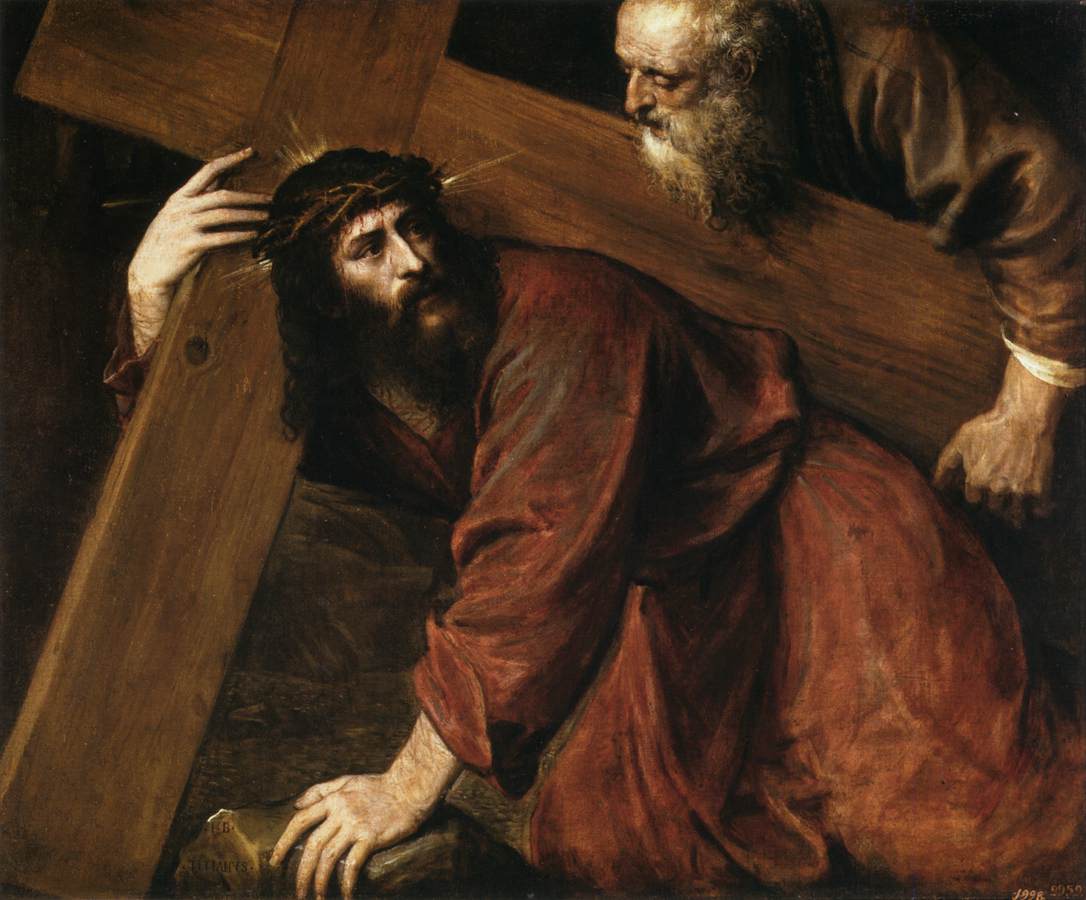
We have been looking at the joy of Holy Thursday and Good Friday.
Back at Christmas we reminded ourselves that joy isn’t an emotion so much as a disposition of heart. Joy is what comes from doing the Father’s will.
Steve had a conversation with a friend that included this rhetorical statement – “We’re talking about 3 hours on the cross. I know it was horrible, but it’s just three hours.” People can reasonably ask – “what are three hours on a cross compared to, say, years of torture in a concentration camp? Or parents who have watched their own children tortured and murdered in the horrors of war?”
We know, by faith, that Christ’s suffering was greater than any other human suffering. St. Thomas Aquinas confirms this, for a multitude of reasons, “From all these causes weighed together, it follows that Christ’s pain was the very greatest.” (See Summa Theologica Part III, Question 46, Article 6). In brief, Christ’s physical suffering would have been extreme both because of the degree of torture and because of the perfection of His bodily senses. Even more is that Christ willed his suffering to be the expiation of all of man’s sins – so “He embraced the amount of pain proportionate to the magnitude of fruit” – He willed to suffer for each and every human sin ever committed. Just as Christ’s perfect human body experienced pain more acutely than ours, His infinite and divine soul experienced the anguish of sin infinitely beyond our comprehension.
For Good Friday, it is a very fitting subject of meditation to talk with Christ about His suffering. “Lord, what do You mean by ‘You became sin’ for us? And that you took on the burden of ‘all of our sins?’”
Steve recalls meditating similarly after that conversation with a friend. “Lord, how was your suffering worse than a parent being forced to watch their own child tortured?” What was given to him was that the Blessed Mother had to watch Jesus tortured to death (in fact, she also shared in his pain, “your soul too a sword shall pierce.”) And that made it all the worse for Christ – who had to watch Mary’s agony as she, in turn, watched him slowly die.
And this really brings us to the crux of why Christ’s suffering was the greatest – because He willed to enter into everything that we experience (except sin) – so that He could meet us in our pain, grief and agony, and transform it into something redemptive. As we are told, “Surely He took up our pain and bore our suffering.” (Isaiah 53:4)
Venerable Fulton Sheen offers the image of Christ walking through an infirmary or battlefield and, like a sponge, taking upon himself all the wounds and pains of each person as he passes by. And Sheen continues, “That is what He was doing on the cross. So that we could never say “does God know what it is to suffer? Does He know what it is to be an exile? Does He know anything about poverty? Or living in a stable? Does He know anything about living under totalitarian governments? If God is good, why does he make me suffer? In the end we will discover that sometimes even when we are very good that suffering is to make us better and we will have a higher place in heaven.”
We said joy is a product of doing God’s will. What is God’s will for us this Good Friday? To draw closer to His Son. The joy of Good Friday is that whatever our burden is – no matter how heavy, painful, or seemingly hopeless or unforgiveable – we can bring it to Christ, in prayer, and He can show us that He bore exactly that burden for us and, if we place our trust in Him, He can transform it into a resurrection.
Good Friday blessings to you –
Steve and Karen Smith
Interior Life
